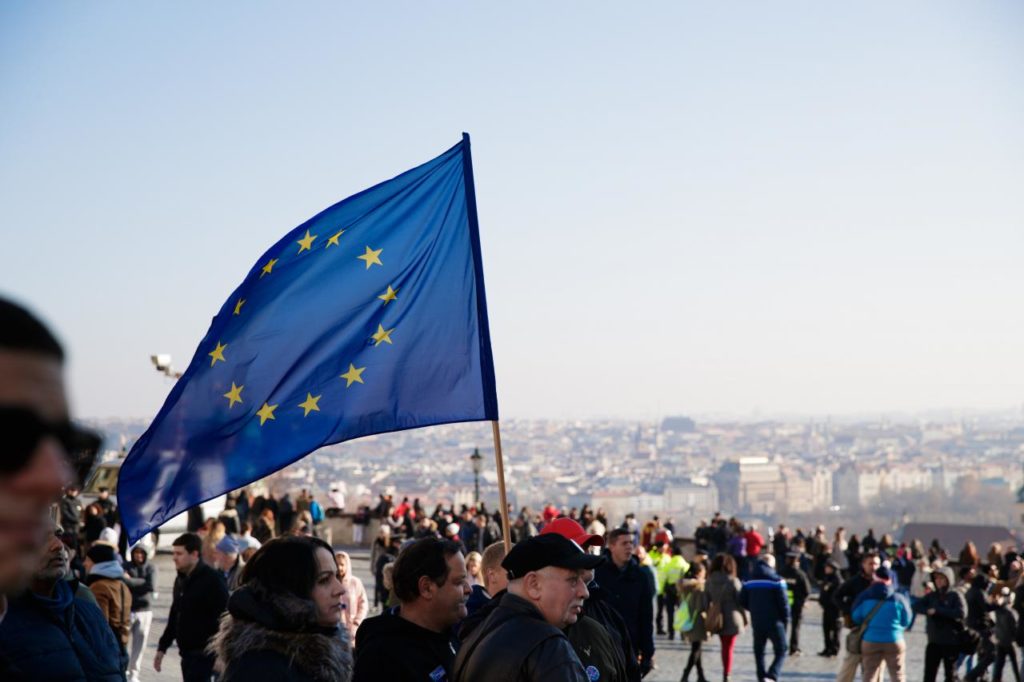Highlight 14/2022 – A miscalculated action: 3 consequences of EU sanctions against Russia
Jérémy Aron, 28 March 2022

Russia has started a war that no one expected. On 24 February 2022, Vladimir Putin launched the invasion on Ukraine, a war of conquest which was supposed to last only three days. Three weeks later, this conflict became a new quagmire for the Russian Federation. The European Union (EU), horrified to see a high intensity conflict along its borders, decided to enforce massive sanctions on Russia with consequences that may last for decades.
In response to the illegal annexation of Crimea in 2014, the EU had already progressively imposed sanctions against Russia. However, with the Russian invasion of Ukraine, EU restrictive measures have heavily increased and become more comprehensive. Economic sanctions target several sectors of the Russian economy such as finance, transport, energy, defence, technology and trade. Individuals and entities are also impacted: their assets have been frozen and travel restrictions imposed. In Crimea and in non-government controlled areas of Donetsk and Luhansk, tourism services have been banned and the import and export of goods and technologies forbidden. Kremlin propaganda media, Sputnik and Russia Today, have been suspended in EU territories, limiting the risk of disinformation and information manipulation which has been revealed several times by the European External Action Service platform, EUvsDiSiNFO. EU-Russia summits have been suspended and Russia is no longer invited to G8 meetings.
The first impact of these sanctions is on the economy. Russia has been isolated from the world trade while it heavily relies on exports, especially for its energy sector. As most Russian banks assets have been frozen (including those of the Central Bank of Russia), it will probably soon become extremely difficult for the government to pay the salaries of civil servants and soldiers engaged in operation. The inflation has dramatically increased while the value of Russian currency Ruble has dropped. Some experts predict that Russia may return to the situation of 1991, after the collapse of the Soviet economy. The catastrophic situation, which is the consequence of a war decision made by the government but unwanted among most of the population, will lead Russians to three options: leaving the country and the risk of misery, stopping the invasion of Ukraine to avoid further sanctions or accepting the situation.
The second consequence is diplomatic exclusion. For years, the EU saw in Russia a strategic partner which needed to be preserved. The fear of a major war with its neighbor prevented this ambiguous relationship from any kind of break-up. But the current conflict and its 1.5 million refugees became a game changer. By invading Ukraine, the Russian government proved to the EU that it was not trustable (a situation emphasized by nuclear threats) and lost its ability to negotiate any compromise.
Finally, the third effect of sanctions is the limitation of Russian hybrid warfare capacities in Europe. The EU soon realised the negative influence of Russian propaganda media, Sputnik and Russia Today, which spread disinformation and Kremlin narratives among European population. The suspension of their broadcasting activities, which are exceptional and targeted measures, was a strong signal from the EU to counter the subversive works conducted for years by these “media”, which should rather be qualified as “information war tools”.
To conclude, Russian invasion of Ukraine seems to have been a miscalculated action. In addition to thousands of deaths on each side and millions of refugees, it has destroyed the Russian economy and image while reinforcing EU solidarity and capacities in modern warfare.
Jérémy Aron, Highlight 14/2022 – A miscalculated action: 3 consequences of EU sanctions against Russia, 28 March 2022, available at www.meig.ch
The views expressed in the MEIG Highlights are personal to the author and neither reflect the positions of the MEIG Programme nor those of the University of Geneva.
